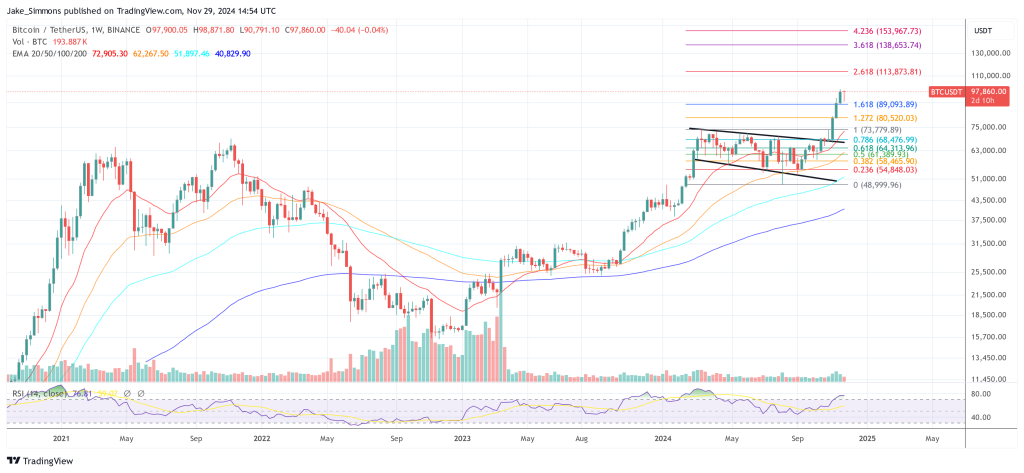and the distribution of digital products.
DM Television
Not The Bitcoin Inventor: UK Court Denies Craig Wright’s Appeal Application
The UK Court of Appeal has firmly rejected Craig Steven Wright’s (CSW) application to appeal his case asserting he is Satoshi Nakamoto, the creator of Bitcoin. The dismissal of Wright’s appeal effectively nullifies his claims, reinforcing the prevailing consensus that he is not the individual behind the pseudonym.
In May this year, the UK High Court of Justice determined that Wright was not Satoshi Nakamoto. This decision was reached in a lawsuit filed against Wright by the Crypto Open Patent Alliance (COPA), a group of companies that alleged Wright had committed forgery to produce evidence supporting his claim of being Nakamoto.
It’s Over! Craig Wright Is Not Bitcoin Inventor Satoshi NakamotoOn November 28, 2024, the Court of Appeal delivered its judgment, unequivocally stating that “Dr Wright […] is not the person who adopted the pseudonym Satoshi Nakamoto, who wrote and published the first version of the Bitcoin White Paper on 31 October 2008, who wrote and released the first version of the Bitcoin Source Code and who created the Bitcoin system.” This conclusion was reached after an exhaustive 22-day trial, during which the judge examined a vast array of factual and expert evidence.
BitMEX Research, in a report shared via X, highlighted critical excerpts from the court’s decision, emphasizing the depth and thoroughness of the judgment. The judge’s decision, spanning 945 paragraphs with an additional 799 paragraphs in the annex, underscored that the evidence demonstrating Wright’s non-identity as Satoshi Nakamoto was “overwhelming.”
Among the pivotal factors influencing the judgment were findings that Wright had “lied repeatedly and extensively to the court in his evidence” and had “forged a large number of documents” to substantiate his claims. The judge’s thorough analysis included over eight days of cross-examination of Wright and the review of 15 witness statements, which collectively dismantled Wright’s assertions.
In response to Wright’s post-trial contentions, the judge addressed several of his claims point by point. Wright alleged that the judge “misinterpreted” various items of evidence and incorrectly attributed documents.
However, the court states: “Dr Wright accuses the judge of bias, but this accusation is baseless. No credible allegation of either actual basis or apparent bias is made by Dr Wright, but only a series of disagreements with the judge’s reasoning. In fact the judge leant over backwards to ensure that Dr Wright received a fair trial. The same goes for the accusation of procedural unfairness.”
The court also tackled Wright’s challenges regarding the handling of expert evidence. It was clarified that Wright’s experts had “agreed with COPA’s experts on most issues,” undermining his claims about their qualifications and the strategic decisions made by his legal team. Additionally, Wright’s assertions about the improper authentication of documents were rebuffed, as the court operates under the principle that “a document is assumed to be authentic unless its authenticity is properly challenged.”
Regarding Wright’s concerns about reasonable adjustments for his Autism Spectrum Disorder (ASD), the court found these allegations “baseless,” highlighting that the agreed-upon adjustments were effectively implemented and that Wright had even “commented positively on the experience” post cross-examination.
“The judge made the adjustments which were agreed between the parties’ experts on ASD and no complaint was made at trial that they were inadequate or ineffective. At the end of the cross-examination Dr Wright commented positively on the experience. A number of Dr Wright’s allegations under this head are simply false,” the court found.
Concluding the judgment, the court stated unequivocally, “The appeals have no prospect of success whatever and there is no other reason to hear them,” thereby bringing an end to Wright’s legal pursuit to validate his identity as Bitcoin’s creator.
At press time, Bitcoin traded at $97,860.

- Home
- About Us
- Write For Us / Submit Content
- Advertising And Affiliates
- Feeds And Syndication
- Contact Us
- Login
- Privacy
All Rights Reserved. Copyright , Central Coast Communications, Inc.